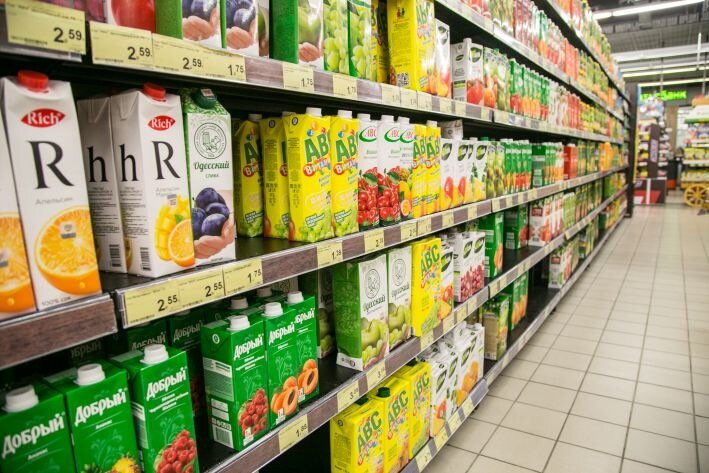There are many myths surrounding juices. Which of them are true and which are fiction?
Drinking juices helps you lose weight
Fruit and berry juices are products with a high content of glucose and fructose. In addition, this type of product contains fast carbohydrates.
Unlike regular carbohydrates, fast carbohydrates do not give the body a feeling of satiety, but only increase appetite.

As a result, the calorie norm is exceeded, and weight increases.
In this case, it is better to limit or completely refuse juice consumption. Fresh fruits and vegetables will be a suitable and less caloric replacement.
Packaged juice is more harmful than freshly squeezed juice
Freshly squeezed juice is most beneficial only if it is drunk within half an hour of preparation.
Afterwards, the process of reproduction of microorganisms begins in it. Consumption of such juice can lead to poisoning.
At the production facility, the juice preparation process is approached with the utmost responsibility.
The harvested fruits and vegetables are immediately sent for processing. Only fruits that have passed strict control are allowed to be pressed. A dent or wormhole is a reason to throw it away.
The situation is more complicated with freshly squeezed juice. Often, the fruits and vegetables for it are store-bought. Such fruits are picked long before they are fully ripe. They are forced to ripen on the counter itself, and this harms their quality.
It is useful to drink a glass of juice on an empty stomach
From a chemical point of view, fruit juice can be considered as a combination of acids. Drinking juice on an empty stomach only harms the body.
This habit leads to stomach ulcers and other gastrointestinal diseases. In addition, the acids of the juice, when consumed on an empty stomach for a long time, can corrode tooth enamel.
Juice is a good addition to breakfast, but breakfast should not consist of juice alone. In addition, juice diluted with plain water will be much more beneficial for the digestive system.
It is better to store juice in the refrigerator.
Cold temperatures and light destroy the vitamins contained in the juice. Vitamin C is especially vulnerable to low temperatures.
Also, after being in the refrigerator for a long time, the juice loses its taste and color.
It is better not to drink juice that has been in the refrigerator for two days – most likely, it is already affected by mold. This mold is difficult to see, however, it is better not to risk your own health.
